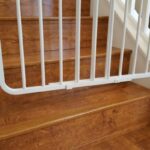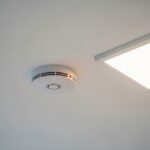Manufactured homes have come a long way from the outdated stereotypes of trailers and mobile homes. Today, they are an affordable, customizable, and eco-friendly option for homeowners seeking flexibility and affordability. Whether you’re downsizing, investing in a vacation property, or simply looking for an affordable alternative to traditional housing, manufactured homes could be your ticket to homeownership. In this guide, we’ll walk you through everything you need to know about manufactured homes, from their construction to financing options, and why they might be the perfect fit for your lifestyle.
What Are Manufactured Homes?
Manufactured homes, sometimes referred to as prefabricated or factory-built homes, are constructed off-site in a factory setting and then transported to their final location. Unlike traditional stick-built homes, manufactured homes are built in a controlled environment, which often means faster construction times and lower costs.
These homes are built according to the HUD (U.S. Department of Housing and Urban Development) standards, which regulate design, construction, strength, durability, transportability, fire resistance, and energy efficiency. The key difference between manufactured homes and mobile homes is that mobile homes were built before the HUD Code was enacted in 1976, whereas manufactured homes adhere to these modern safety and quality standards.
Benefits of Manufactured Homes
- Affordability: One of the biggest draws of manufactured homes is their affordability. On average, a manufactured home costs about half the price per square foot compared to a traditional site-built home.
- Quick Construction: Since these homes are built in a factory, the construction process is much faster than traditional home building, which can be delayed due to weather and other site-related factors.
- Customizability: Modern manufactured homes come with various options for floor plans, finishes, and upgrades, allowing buyers to personalize their space.
- Energy Efficiency: Manufactured homes are built with energy efficiency in mind, using modern insulation, windows, and HVAC systems to reduce utility costs.
- Financing Options: Many lenders now offer financing specifically for manufactured homes, making it easier for buyers to secure a loan.
Manufactured Homes vs. Modular Homes
Manufactured homes and modular homes often get confused with each other, but there are key differences. Both are built in factories, but while manufactured homes are built to federal HUD standards, modular homes are built to local or state building codes, much like traditional homes. Additionally, modular homes are typically transported in sections and assembled on-site, whereas manufactured homes are moved as a single unit or in multiple sections and can be placed on permanent or non-permanent foundations.
How Are Manufactured Homes Constructed?
The construction of a manufactured home begins in a factory, where all components are assembled in sections. This process ensures precision and reduces waste, making it a more eco-friendly option than traditional construction. Here’s a step-by-step breakdown:
- Design and Planning: Buyers can choose from a variety of floor plans and customize their home with different finishes, appliances, and layout options.
- Fabrication: The walls, floors, and roof are built in sections, with insulation, plumbing, and wiring pre-installed in the factory.
- Assembly: The sections of the home are put together, and quality checks are performed to ensure everything meets the required standards.
- Transportation: Once the home is completed, it is transported to the buyer’s property, where it is placed on a foundation or other supporting structures.
- Installation: The final assembly is completed on-site, and the utilities are connected.
Is Financing for Manufactured Homes Different?
Yes, financing for manufactured homes can differ from traditional home loans, but it’s not as difficult as you might think. Here’s how it works:
- Chattel Loans: If the manufactured home is placed on leased land, a buyer may be eligible for a chattel loan. These loans are secured by the home itself but not the land, which usually results in higher interest rates.
- FHA Loans: The Federal Housing Administration (FHA) offers loans for manufactured homes, but the home must be permanently affixed to a foundation to qualify.
- Conventional Loans: Some lenders offer conventional loans for manufactured homes, but the terms can vary widely depending on the lender and the buyer’s financial situation.
- VA Loans: Veterans may qualify for VA loans to finance a manufactured home, but like FHA loans, the home must be on a permanent foundation.
Are Manufactured Homes Eco-Friendly?
Manufactured homes can be an eco-friendly option for several reasons:
- Less Waste: Since the homes are built in a factory setting, there’s less waste generated compared to traditional construction.
- Energy Efficiency: Modern manufactured homes are designed with energy-efficient appliances, insulation, and windows, reducing the home’s carbon footprint.
- Sustainable Materials: Many manufacturers use sustainable and recyclable materials during the construction process.
FAQs About Manufactured Homes
Are manufactured homes safe? Yes, manufactured homes are built to strict HUD standards that ensure they are safe and durable. These standards regulate fire resistance, structural integrity, and overall safety.
Can I place a manufactured home anywhere? Not always. Zoning laws and land use regulations vary by area, so you’ll need to check local regulations before purchasing a manufactured home. Some communities may restrict where manufactured homes can be placed.
Do manufactured homes appreciate in value? Manufactured homes, like traditional homes, can appreciate in value depending on the market, location, and upkeep. However, they typically don’t appreciate as quickly as site-built homes.
Can I remodel a manufactured home? Yes, you can remodel a manufactured home, but there may be limitations depending on the structure and local building codes. Be sure to consult with a contractor who has experience with manufactured homes.
Final Thoughts: Are Manufactured Homes Right for You?
Manufactured homes offer an affordable and flexible alternative to traditional housing, making them a popular choice for first-time homebuyers, retirees, and anyone looking to downsize. With modern construction techniques, energy-efficient designs, and customizable options, manufactured homes have evolved into a reliable and attractive housing solution. However, it’s important to research local zoning laws, financing options, and potential resale values before making your decision.
Ultimately, if affordability, customization, and quick construction time appeal to you, manufactured homes might just be the ideal choice for your next home.
Authoritative Links
- HUD Guidelines for Manufactured Homes – https://www.hud.gov
- Federal Housing Administration (FHA) Loans – https://www.hud.gov/program_offices/housing/fhahistory
- VA Loans for Manufactured Homes – https://www.benefits.va.gov/







